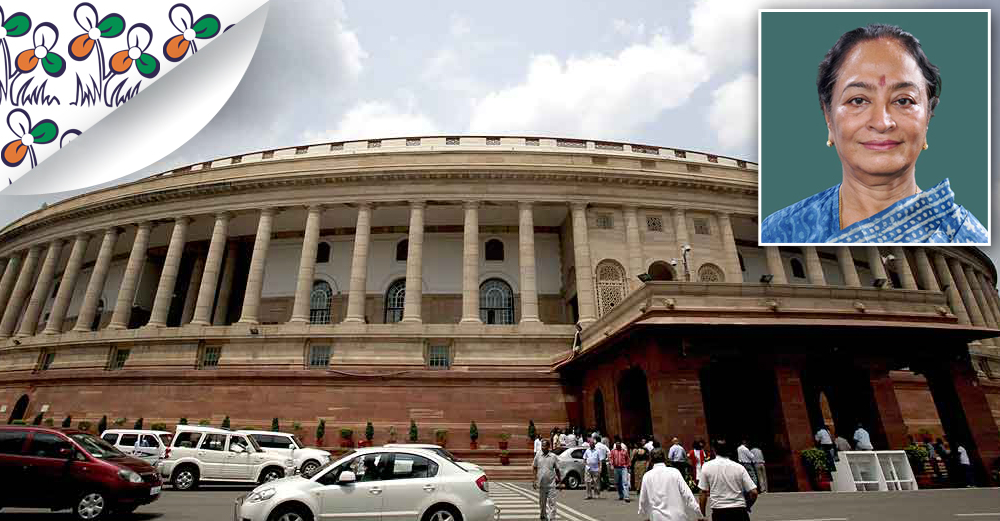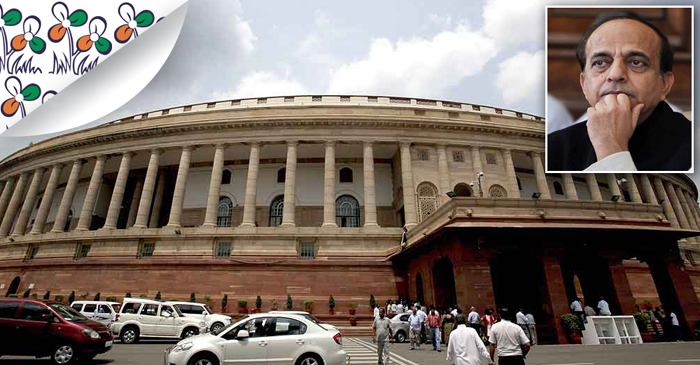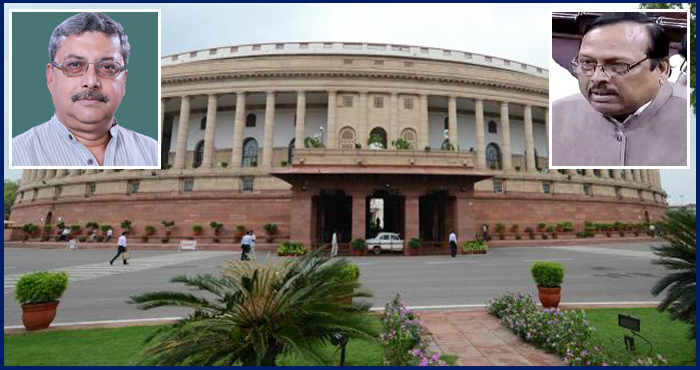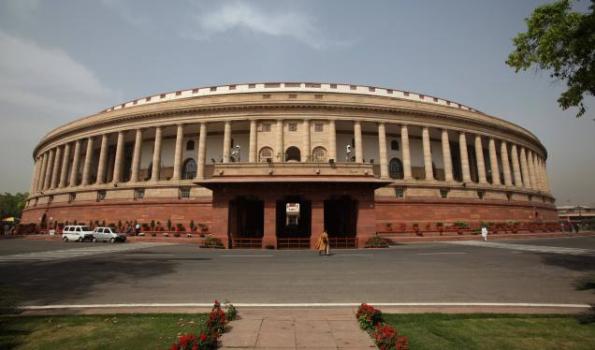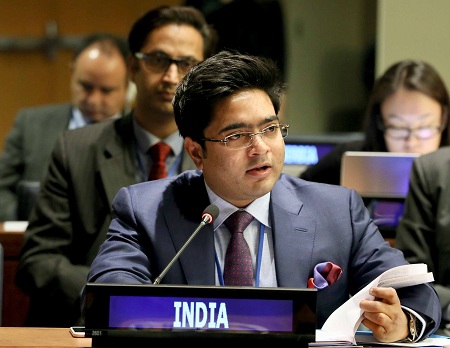The word ‘intolerence’ is a mere euphemism for a wave of unreason, injustice and inhumanity that has been unleashed across our country during the last few months. My friend, Mr Venugopal has already given a comprehensive catalogue of the incidents that have taken place, so I will not repeat that catalogue. In order to confront the challenges that confront our country today a powerful message needs to go out from this Lok Sabha, the House of the People, that reason (or akal) will be our only torch, justice (or insaaf) our only worship and humanity (or insaniyat) our only religion.
As the minorities face the cold winds of exclusion from the powers-that-be today, it is pertinent to recall what Dr Ambedkar said on the question of minority protection while introducing the draft Constitution on November 4, 1948. I will quote only one, the most important, sentence, from that historic speech: “It is for the majority to realise its duty not to discriminate against minorities.”
Whatever might be Mr Rajnath Singh ji’s reservations about the term ‘secularism,’ its use or misuse, will he as Home Minister at least perform this duty enjoined on us by the architect of our Constitution? If we wish to truly honour the lead author of our Constitution on his 125th birth anniversary, let us pledge today collectively never to let our minorities feel insecure in this great land of ours.
Had the honourable Speaker allowed this humble historian to say a few words in the discussion on the Constitution, I would have just said something about the concept of constitutional morality that our Home Minister referred to towards the end of his speech.
Dr Ambedkar invoked the concept of constitutional morality described by Grote, the historian of Greece, as “a paramount reverence for the forms of the Constitution enforcing obedience to authority acting under and within this forms yet combined with the habit of open speech and unrestrained censure of those very authorities as to all their public acts.”
Constitutional morality, Dr Ambedkar told us, is not a natural sentiment; it has to be cultivated and the people have to learn it. And he followed up this contention with a rather debatable contention: he said, democracy in India is only a top dressing of the Indian soil which is essentially undemocratic. Now in today’s climate, who knows, someone would probably label him unpatriotic, anti-national for having said so. But if we are a mature democracy we will ponder over his remark and embrace the value of constitutional morality as respect for forms and processes that enable us to negotiate and then rise above differences, difference which Grote described, are characterised by the bitterness of party contests. This Lok Sabha needs to transcend this bitterness of party contests.
In the course of the Constituent Assembly debates, Zairul Hassan Lari pointed out that constitutional morality was a value that not just citizens should learn but also the government must learn; the spirit underlying the Constitution and not just the words must guide the Government. When will this Government begin to appreciate that it can learn much more from the criticism of its opponents than from the eulogy of its supporters? I urge this Government to listen to the voices of our most brilliant thinkers and writers, historians and scientists, artists and activists, and not let loose their hounds in the social media on them whenever they express their anguish or concern. Don’t be sarcastic about them by calling them “our wonderful intellectuals.”
To be absolutely clear, we are not saying that India is intolerant. We are saying, followers, supporters and even some members of this Government are spreading a virulent form of prejudice and bigotry. The refusal to unequivocally condemn and take exemplary action against the offenders on the part of the leader of this Government must be seen as out of sync with the concept and the value of constitutional morality.
Our poet, Kazi Nazrul Islam had sung, “Hindu na ora Muslim oi jigyase kon jon/ Kandari bolo dubiche manush, sontan mor maa’r.” The duty of the captain of a ship is to treat his passengers in crisis equally as human beings, as children of the mother.
Intolerence is bad, Madam Speaker, but tolerance is not good enough. I agree with Supriya Sule that should we just be tolerating one another? That is not my idea of India; we have to aspire for something much higher. We must cultivate the value of cultural intimacy, ‘sanskritik sannidhya’, among our diverse communities, that was the foundation of Netaji Subhas Chandra Bose’s political philosophy. He said to the Maharashtra Provincial Conference as early as 1928, that democracy is by no means a western institution, it is a human institution. He wanted to see a federal republic of India after independence, and he warned Indians not to become a queer mixture of political democrats and social conservatives, and he spoke in unequivocal terms about building political democracy on the pedestal of a democratic society; and he spoke about not just the depressed classes, the working classes, but also the women of India. He regretted that the different communities in India were too exclusive.
Fanaticism is the greatest thorn in the part of cultural intimacy, he told his audience, and there is no better remedy for fanaticism than secular and scientific education. That was the first occasion on which Subhas Chandra Bose used the term ‘secular.’ For him, secularism was not hostile to religion or religiously informed cultural differences, but he felt it could help foster cultural intimacy, ‘sanskritik sannidhya’ among India’s diverse religious communities.
Madam speaker, a few days ago I saw a beautiful photograph of our Prime Minister paying homage to Netaji and the noble martyrs of the Indian National Army in Singapore. Our Chief Minister Mamata Banerjee paid her tribute during her visit to Singapore last year. Who were these martyrs? They were Hindu, Muslim, Sikh and Christian soldiers who dined together before they went to war together, and their blood mingled in the battlefields around Imphal and Kohima so that India maybe free. The original martyrs’ memorial had been blown up by Mountbatten’s forces. The Singapore Government very generously built a new memorial fifty years later in 1995.
What was the name of the INA officer who built the martyr’s monument? His name was Cyril John Stracey, a wonderful Christian, an Anglo Indian officer of the INA, and the motto of the INA ‘Ittehad, Itmad aur Qurbani’ was emblazoned on it. On the 16th, 17th January of 2016, we in Kolkata will be observing the 75th anniversary of Netaji’s Great Escape from India. Sisir kumar bose drove him out of Calcutta. But who received him in Peshawar? His name was Mian Akbar Shah a great freedom fighter of the North West Frontier Province. Who was Netaji’s only Indian companion on the perilous submarine voyage from Europe to Asia that took ninety days? His name was Abid Hasan from the Hyderabad Deccan. Who was the commander of the first division of the INA that fought in India’s North East? His name was Mohammad Zaman Kiani. Who hoisted the Indian tricolor in Moirang, near Imphal in 1944? His name was Shaukat Malik. And who was Netaji’s only Indian on his final flight in 1945? His name was Habibur Rahman. And what were the names of the three officers who were put on trial at the Red Fort 70 years ago? Their names were Prem Kumar Sahgal, Gurbaksh Singh Dhillon and Shahnawaz Khan.
We have observed an anniversary of the Constitution, the birth anniversary of Dr. B.R. Ambedkar. I think we ought to be observing the 70th anniversary of the Red Fort Trials that began on the 5th of November 1945 and ended on the 31st of December 1945, and these three men were sentenced to deportation for life, but the British could not implement that sentence. The older generation will certainly remember that there was a slogan ‘Lal Quile se aye awaz Sahgal Dhillion Shahnawaz’. Mahatma Gandhi visited the INA armies in the Red Fort and he was told that in the INA, ‘we do not recognise any differences of creed and religion. But here, the British are serving us ‘Hindu Tea’ and ‘Muslim Tea’ separately. So Mahatma Gandhi asked, ‘Why do you suffer it?’ So the reply came, ‘no we don’t, we mix Hindu tea and Muslim Tea half and half and then serve the same with food’. We have to rekindle that spirit of the winter of 1945 in India Today.
Madam Speaker, our fight against intolerance is essentially a fight against on reason in justice and inhumanity.
In conclusion let me make a fervent appeal concerning a sensitive issue that has led to a tragic loss of lives in recent months. We do of course have Article 48 as part of the many directive principle of the state and the subject of agriculture and animal husbandry urging steps for prohibiting the slaughter of cows.
Now Smt Lekhi yesterday made reference to this detective principle to the course of fiery speech, but it cannot under any circumstances be used as a sordid pretext to take precious human life. Dr Ambedkar would have been horrified to see this happen.
In my maiden speech delivered in June 2014 I had mourned the death of Mohsin Sheikh, the computer engineer in Pune. The incident had happened just days after the new government took power. Today I mourned the death of Mohammad Akhlaq and others who have been victims in recent months of the poison of religious hatred.
In the name of by gone generations that have built the Indian people into a nation I invoke the noble meaning of word ‘Akhlaq’. What does ‘Akhlaq’ mean? It means ‘ethics’. And I urge those who holds the reins of power in our country today, especially our Prime Minister and our Home Minister Rajnath Singh ji, to uphold the fundamental right to lives & liberty of all our citizens and abide by ‘Akhlaq’, the ethics of good governance that have informed the very best of Indian political heart and practice through the ages.
Thank you Madam Speaker.

